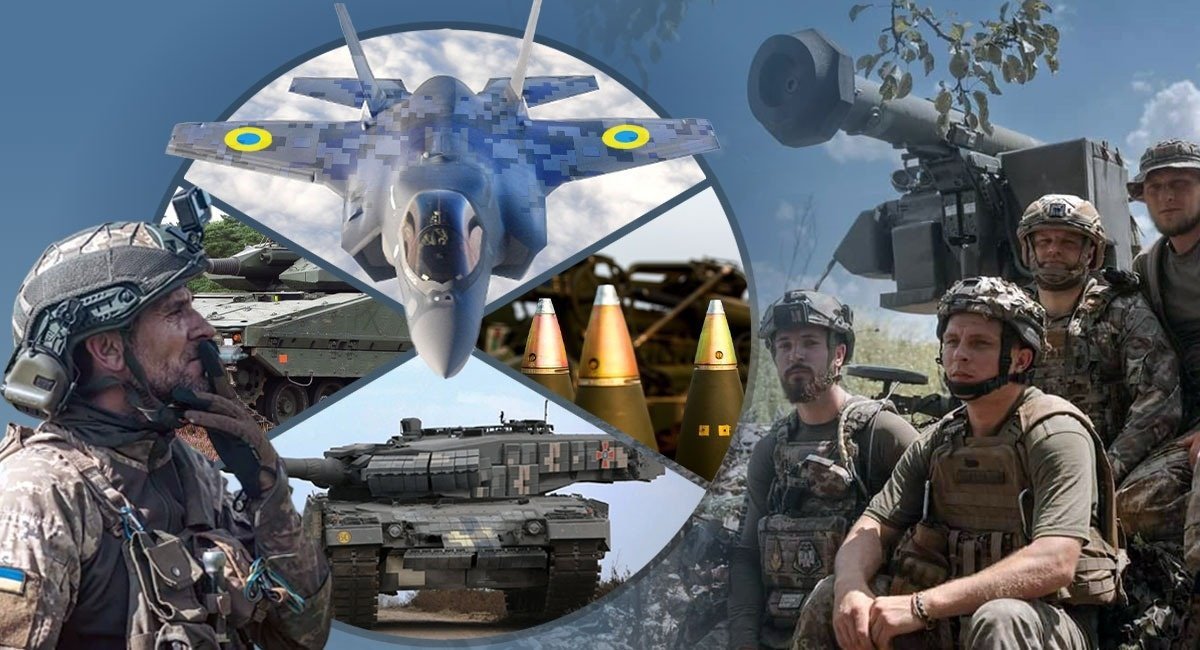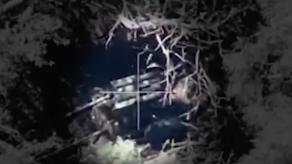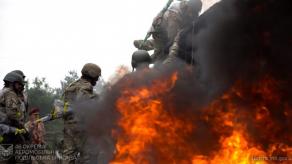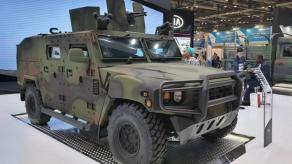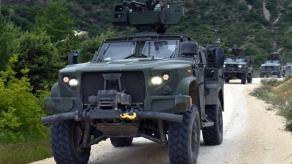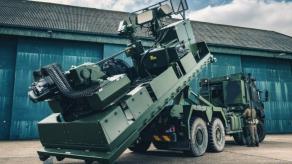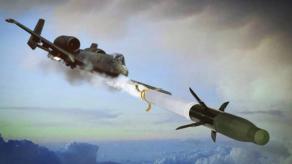Russia’s unprovoked large-scale aggression against Ukraine caused a tectonic shift on the international arms market, significantly weakening the positions of the Russian weaponry and making Ukraine one of the largest importers of weapons and military equipment in the world.
According to the latest report by the Stockholm International Peace Research Institute (SIPRI), Ukraine made the top three list of the largest importers of armaments in 2022, coming after Qatar and India. It is also currently one of the largest operators of Western-made weaponry.
Read more: Following the Example of Sweden and Finland, NATO Membership Action Plan Was Canceled for Ukraine... or Not
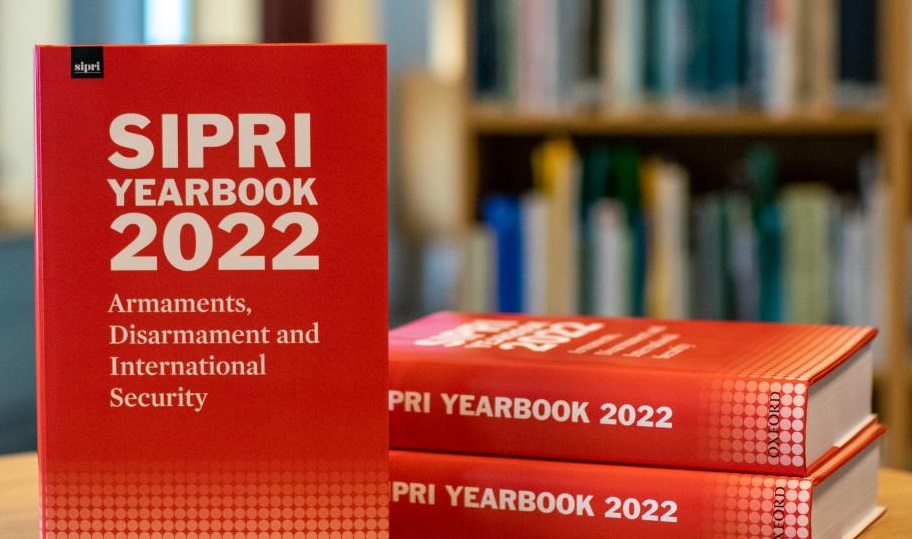
It has already enticed Ukrainian businesses to acquire the competences in repairs and upgrading of Western armaments. In the future, this will inevitably bring in well-known weapons brands, create new repairs and production facilities, and open exciting prospects for close and mutually advantageous cooperation between foreign and Ukrainian developers and manufacturers of armaments in the interests of improving Ukraine’s defense capabilities. As Western approaches to technology, the competences of Ukrainian manufacturers, and the combat experience of the defenders of Ukraine come together in a fruitful interaction, new prospects will open for joint projects on the international market.
To learn how to make the most of the opportunities unexpectedly created by Russia’s unprovoked large-scale aggression against Ukraine, Defense Express correspondent talks to Pavlo Verkhniatskyi, the Director of the Ukrainian compliance and strategic intelligence company COSA.
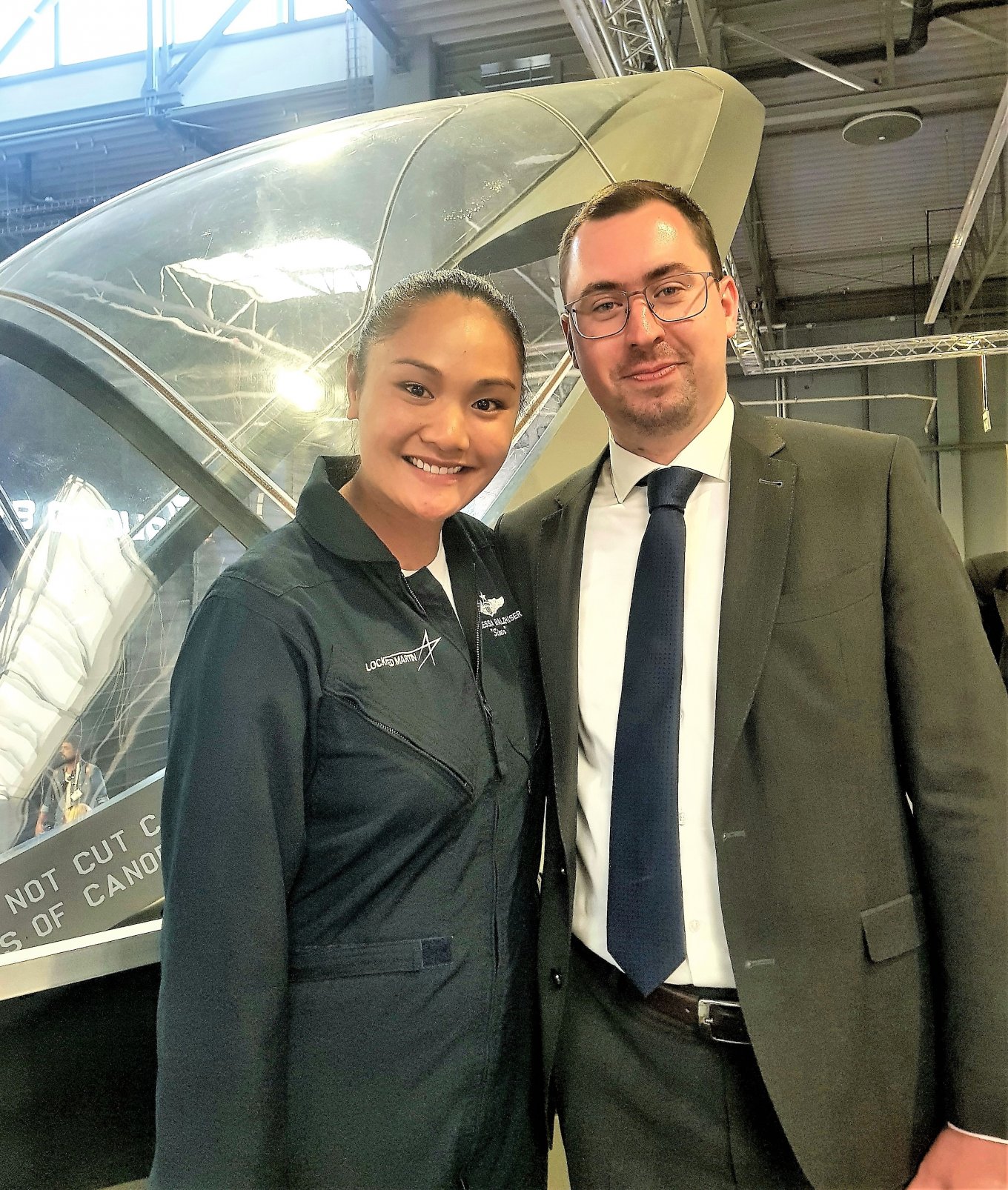
Defense Express Reference Information:
Pavlo Verkhniatskyi is the Director and Managing Partner at COSA, a company specializing in international compliance and corporate intelligence. He consults international and Ukrainian business actors on strategy, compliance, and political risks when working with foreign markets and manages due diligence and corporate intelligence projects worldwide. Pavlo consults global actors on defense issues in their operations on foreign markets.
Pavlo is one of the coordinators of the Aerospace and Security Task Group of the U.S.–Ukraine Business Council (USUBC), a co-Chairman of the Compliance Committee of the American Chamber of Commerce (AmCham), and a member of the Ethics Committee of the Ukrainian Network of Integrity and Compliance (UNIC), and the Public Council of the National Agency on Corruption Prevention (NAZK).
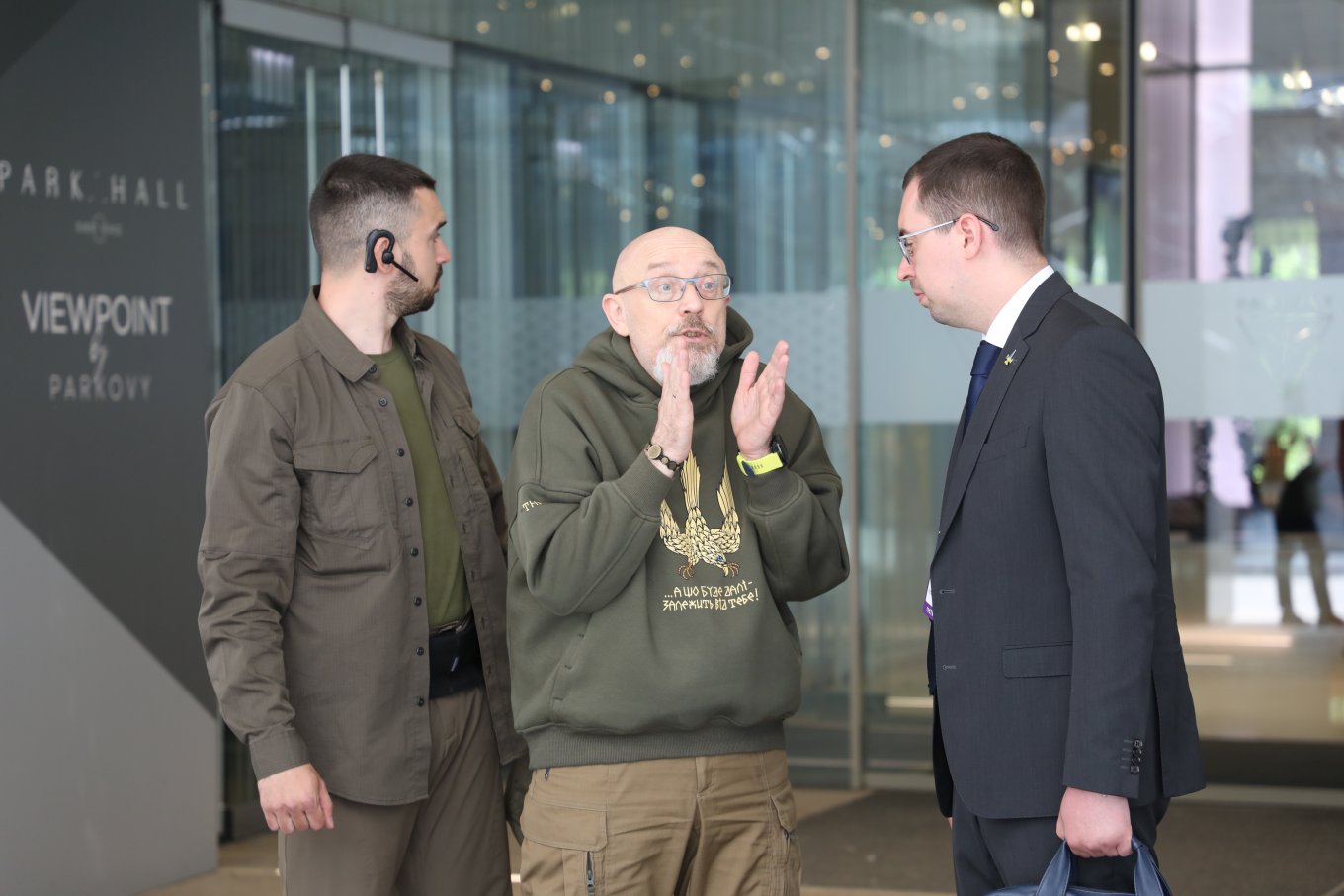
Pavlo, we are having this conversation in wartime, when Ukraine has the existential task of winning and coming out of this war stronger than we were before. To accomplish this, it is important to pay attention to other components, in addition to the operations on the ground, of which the defense industry is probably the most crucial. The way we supply our Armed Forces may well determine, not only our victory against the aggressor, but the security of the post-war rebuilding of Ukraine and stable development of our society. It will be difficult for Ukraine to do it alone, to say the least. However, Ukraine has a wide circle of partners that can make accomplishing the task much easier. Tell us what you think. What are the benefits and prospects of developing cooperation with foreign manufacturers of military equipment and dual-use products?
First of all, we have to decide if Ukraine really needs to cooperate with foreign partners in the defense industry and what kind of benefits that may bring. After all, many countries don’t have a defense industry of their own, and they do well without it, focusing instead on other industries like financial services, agriculture, etc.
In addition to its unique geographical position, Ukraine has an uncommonly large number of rare natural resources and the most fertile soil in the world. It all requires protection, as we can see from the latest hot war with Moscow, and will become increasingly important against the backdrop of the looming global shortage of cultivatable land, fresh water, and various resources that are important for the modern economy.
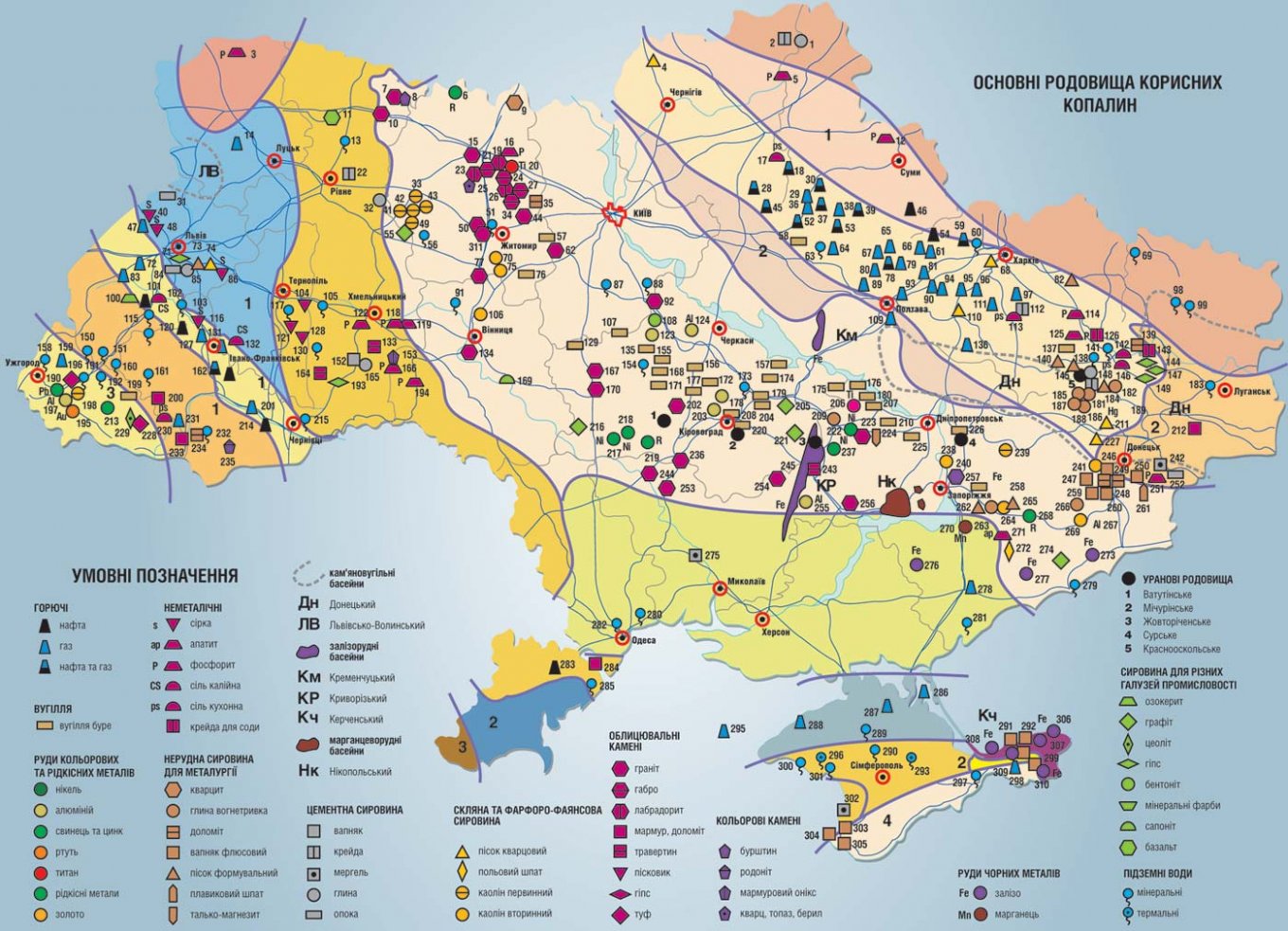
To protect itself, Ukraine needs a powerful military with state-of-the-art equipment, which can be purchased abroad, but that kind of expenditure contributes to the deficit in the trade balance. For a country that has considerable capacities to manufacture finished high-tech products, such a strategy appears short-sighted, to put it mildly, particularly when the research and technology resources are obviously underutilized.
If we were to look at Ukraine’s research budget, even in relatively peaceful times, and compare it to research expenditure in, say, Israel, we would see a striking difference. Keep in mind that the research part of military hardware development is probably the most important.
Moreover, I believe armaments should be purchased when domestic capacities are not enough to supply the Armed Forces with everything they require in terms of weapons and equipment, and when the need is urgent, or when foreign markets have unique technology that domestic manufacturers have no access to at a particular point in time. In our case, those are the most important factors.
Many full-cycle production elements in aviation, missile, and armor industries have been destroyed, by the Russian aggression among other things. Pre-war state defense orders were not conducive to production scaling. For example, although it’s key to success on a foreign market, a funding and after-sales service mechanism has not yet been developed in military transport aviation despite the competitive capacity of Ukrainian hardware per se. There are subjective and objective reasons for that, but, the situation being what it is, we can only accept it as instructive material that we can use to correct our mistakes in the future.
Another problem is the absence of a clear strategy of development even for specific enterprises in the industry. For example, it’s unclear why so much effort was put in the production of passenger planes when it was military transport aircraft that had an obvious competitive advantage on the international and domestic markets. Why channel resources into a demonstrably unscalable segment? The same thoughts have been voiced in private conversation by our international partners that have taken their aircraft to global markets and noticed many nuances typical of the aviation industry.
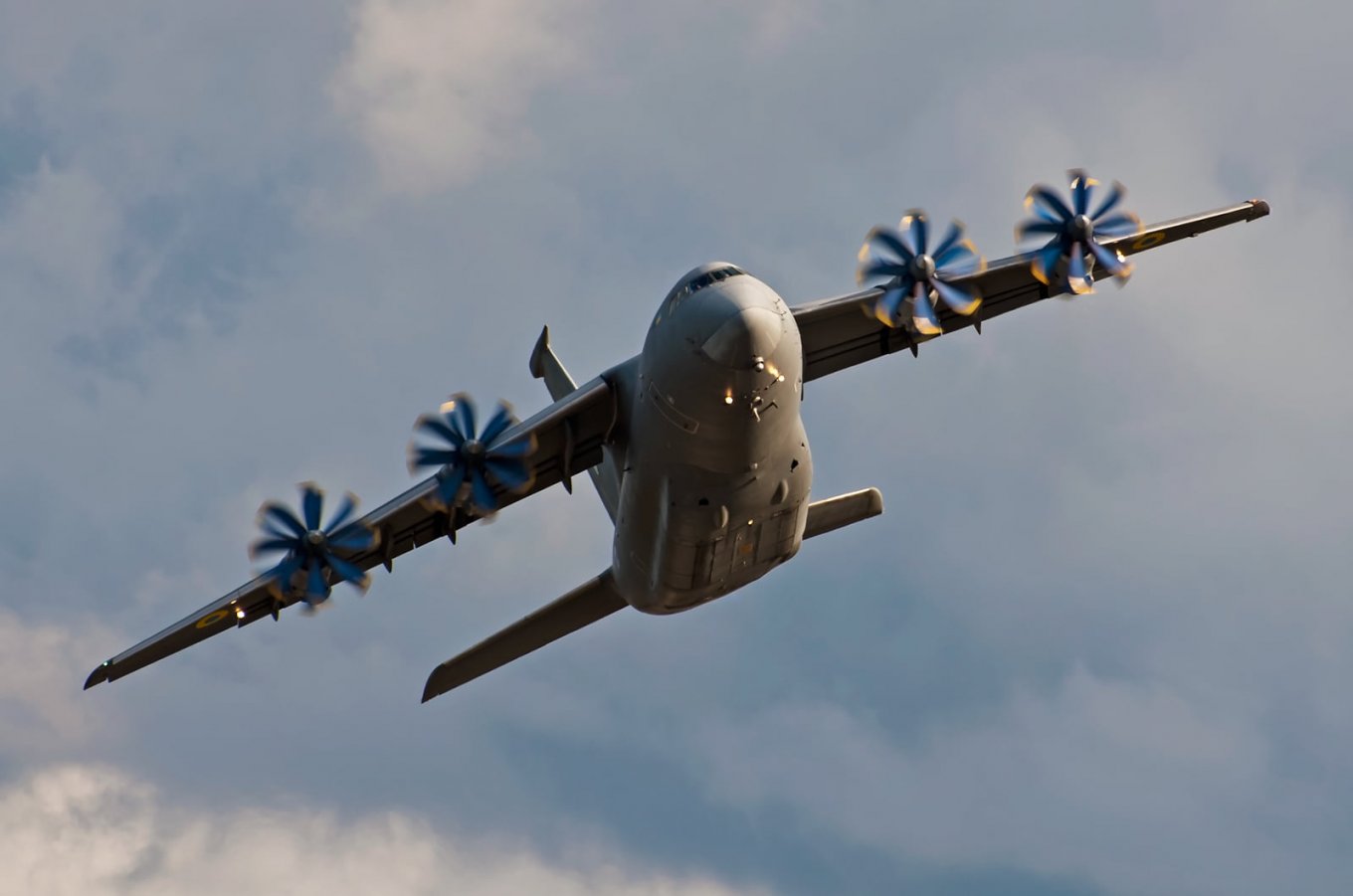
As for the Soviet hardware we now have, repair facilities will probably have nothing to work with after the war, given how quickly that hardware is lost and replaced with NATO-style equipment, which is much more effective on the battlefield. These facilities may continue to repair the Soviet hardware still in use all over the world for some time, but, strategically speaking, they have to be refocused on repairs and maintenance of NATO equipment.
As you can see, one of our post-war objectives will be to equip the Ukrainian Armed Forces with the NATO-type weaponry Ukraine does not yet produce. However, we cannot expect to have a large procurement budget for it, because the country will require funds for rebuilding and rapid non-obvious state revenues in traditional categories. With this in mind, it would be prudent to introduce offset mechanisms when transferring armaments to Ukraine, including simultaneous infrastructure investments, which will be required after the war anyway, and localization of production.
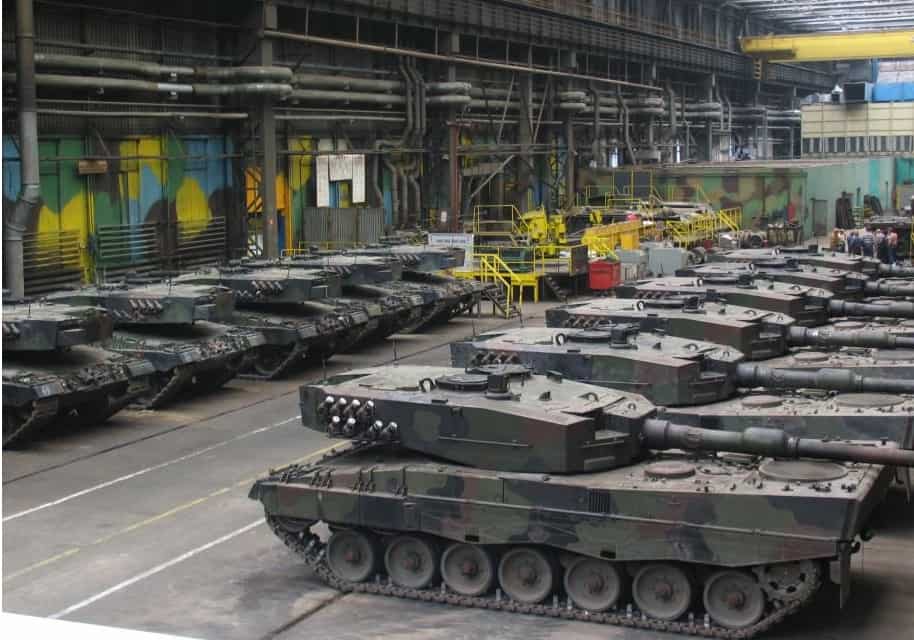
Cooperation with international partners and joint production in Ukraine have excellent prospects at least in the main categories where Ukraine has a solid foundation, including tanks and armor, missile systems and ammunition, military transport aircraft and aircraft engines, and radar systems. Further down the road, we should consider modern air defense systems, rocket artillery, etc. I certainly hope the production of components as part of international aerospace industry projects will become important as well. Once we switch to modern Western-type aircraft, we will also require maintenance and repair facilities to service them. All the invaluable practical experience in the development and production of UAVs and automated systems Ukraine has gained throughout the war will hopefully continue to be utilized in a separate segment. Close cooperation with Lockheed Martin, BAE Systems, Rheinmetall, and other arms and security giants brings with it the reputation, economic advantages, as well as the political and security support of their countries of origin. In short, now is the time for Ukrainian defense companies to seize the new opportunities and build ties with the leaders of the international market.
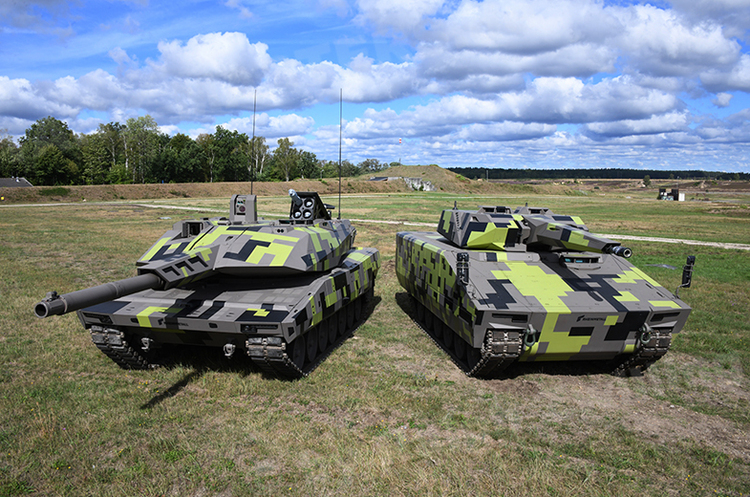
Logically, the next question is what’s in it for our foreign partners, the international companies that already have leading positions on the market? How can Ukraine entice other countries to help it develop its defense industry? What would they gain?
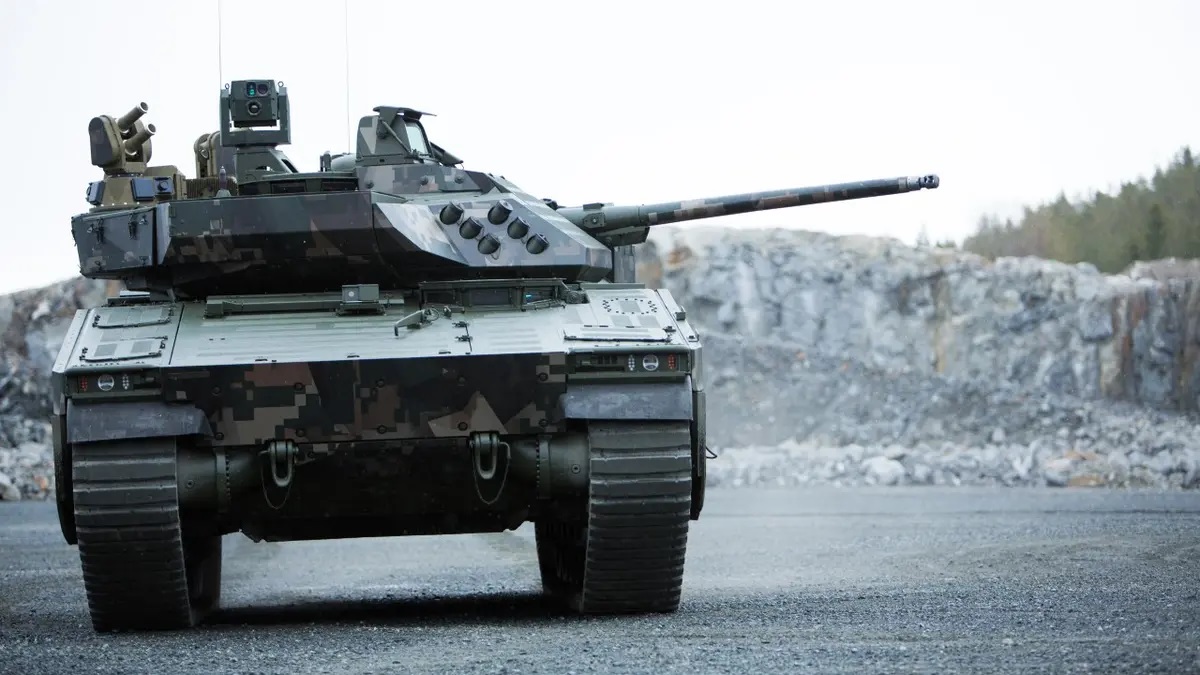
Firstly, it’s important to understand who may be interested in it. Interests differ after all. Turkey, for instance, which has made great strides in its defense industry, may find cooperation with Ukrainian enterprises attractive, because Ukraine has the stronger research and technology base in some segments. It’s not a coincidence that the most sophisticated part of the Turkish heavy UAVs, the engine, is made in Ukraine.
Poland may be interested in expanding its cooperation with Ukraine as well, even though it has long been included in complex international cooperation processes with the largest global actors in the sector. In addition to the existing projects with Ukrainian developers and manufacturers, Poland and Ukraine may join forces to start producing artillery systems. In addition to connecting Ukrainian enterprises with other global actors that participate in the production of Polish artillery systems, it will make the end product much cheaper. Poland can use the more affordable products to enter third markets where it doesn’t yet have a strong foothold, which will make it more competitive next to large weapons exporters that focus on emerging markets and usually entice customers with low prices. Even a partial localization of Polish systems in Ukraine will help the Poles see Ukraine as a potential customer that will require quite a lot of self-propelled artillery pieces to replenish its stocks.
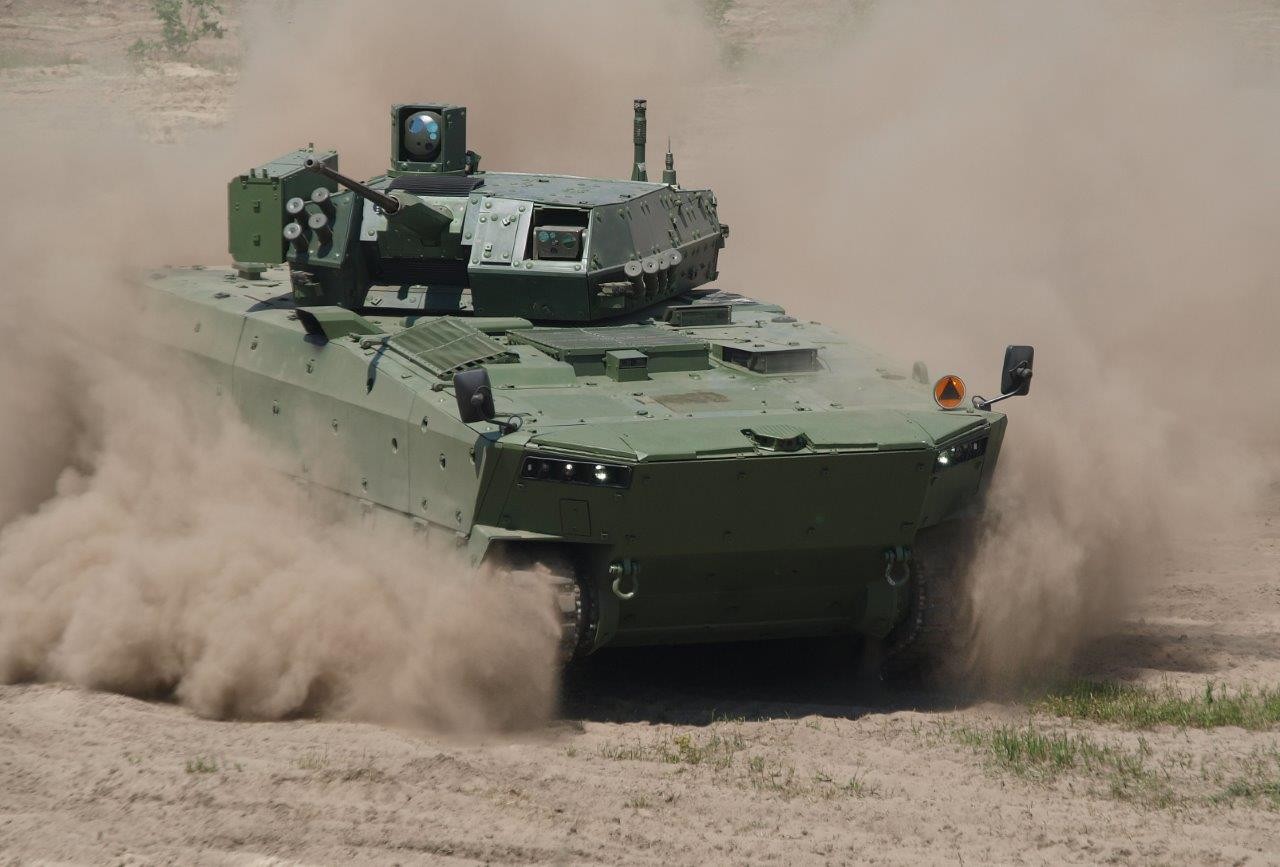
Here in Ukraine, we will have to build such business relationships to include offset obligations like production being located in Ukraine. This doesn’t mean that Ukraine cannot develop its own self-propelled artillery. After all, current production capacities in Poland and Ukraine fall far short of what the Ukrainian Armed Forces require. There are export prospects to consider as well.
Cooperation with U.S., UK, German, French, and Italian defense industry giants is possible too, I think. It can be facilitated by the same factors I’ve mentioned when talking about Poland. Firstly, it’s the entering of third markets and competition with China, for example, or the Russian Federation (if the latter remains capable of doing so after the war), and secondly, localization of production to supply the Armed Forces of Ukraine. Moreover, manufacturers from those countries may be interested in accessing Ukraine’s resource base including titan, aluminum, uranium, lithium, etc. However, this requires a system to support it, and Ukraine must already be preparing relevant segments to be able to achieve specific objectives.
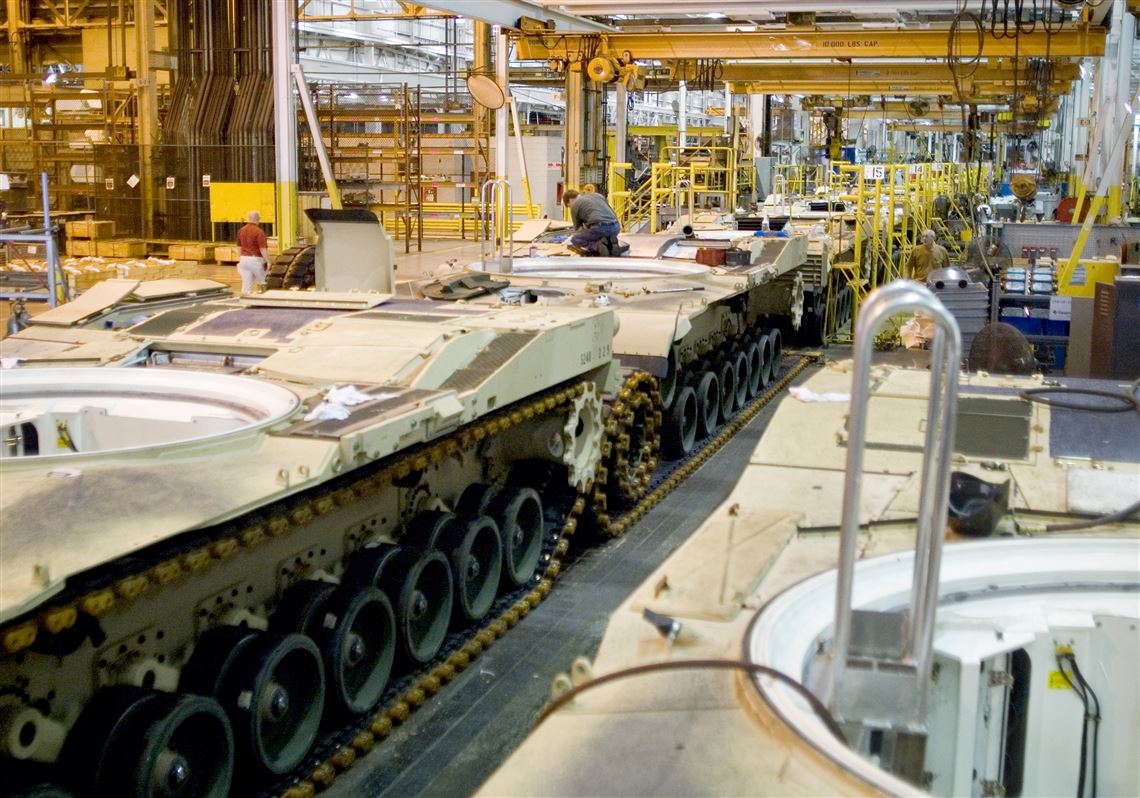
In a complex geopolitical environment, against the backdrop of trade wars, Ukrainian resources, especially the ones processed locally, can become an important leverage, or motivator, for foreign weapons manufacturers to enter our jurisdiction. Resources may be processed here or exported as raw materials or products to be processed at core enterprises.
The first public projects with global industry leaders currently focus on maintenance and repair of the hardware our Western allies transfer to Ukraine. These are excellent initiatives that can later be transformed into production projects. They also signal other actors that such cooperation can be beneficial. It’s important to include such projects into new production cycles in addition to repairing the equipment that may soon be replaced with more up-to-date pieces in the countries that donate it to us.
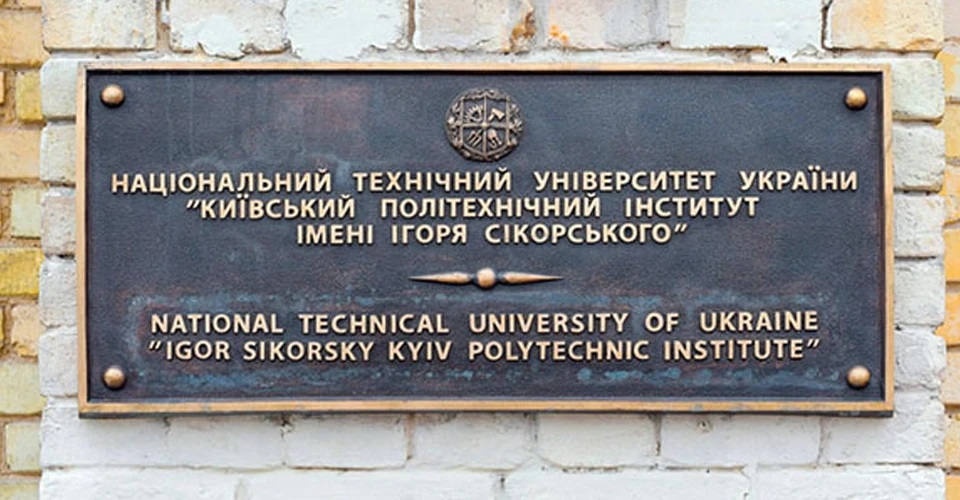
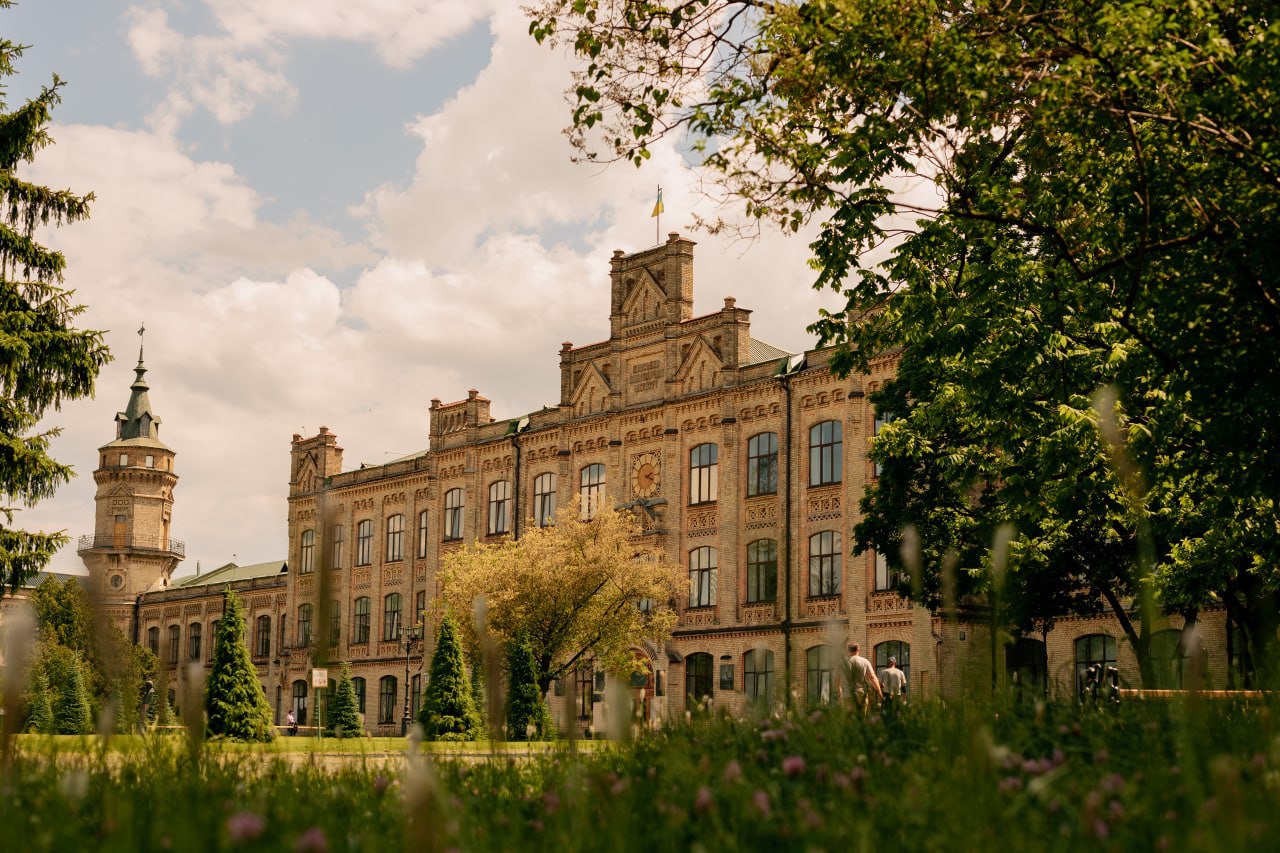
I know that American manufacturers will be interested in supporting research and education programs at our universities and colleges to create a pool of professionals for their R&D centers and production facilities. With a smart approach, opening R&D and innovation centers (and later, production facilities) in Ukraine with our international partners can mitigate the risk of brain drain considerably. It can be done by private organizations, which are usually more effective in these kinds of projects. For example, ProgressTech Ukraine delivers engineering and design services to the global aircraft construction giant Boeing, which employs more than a thousand Ukrainian professionals that design the famous Boeing 737 and the new Dreamliner in Ukraine. It’s up to the state to create favorable conditions in terms of research, education, international communication, state defense orders, etc.
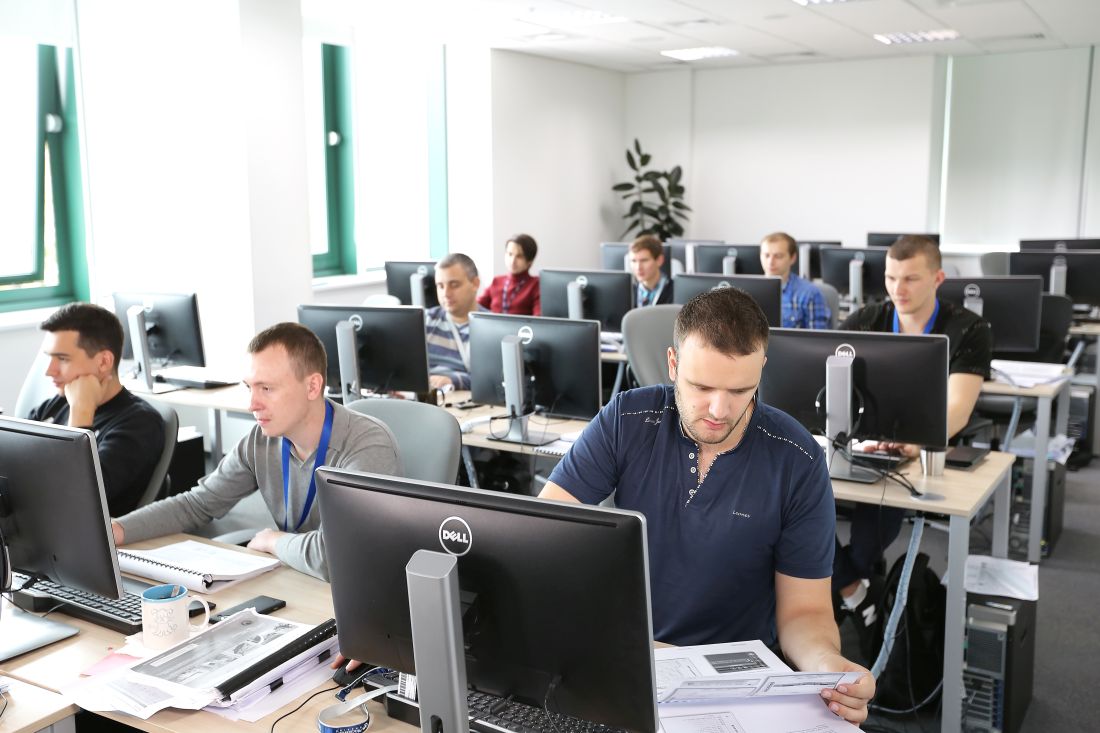
In some subsectors, the Ukrainians have made tremendous strides because of their extensive experience of fighting against an extremely difficult enemy, particularly in the field of radio-electronic warfare. Here, the whole world is watching closely how our military use UAVs. If I’m not mistaken, there isn’t a fully developed concept anywhere in the world of how to use UAVs in combat, and if there is, it will have to be rewritten after this war. We are already working on involving American UAV manufacturers that successfully cooperate with the Pentagon in joint enterprises in Ukraine. They have a lot to offer, particularly in terms of organization and management, production scaling, and some technological aspects. But they also want to learn from our experts. I believe it’s the best kind of synergy, because it has clear economic prospects on foreign markets and elsewhere. Since Ukrainian UAVs have many Chinese-made components (up to 50% at times), American investments in this segment will make it possible to produce components in Ukraine, creating an excellent alternative for the manufacturers in the United States, where unmanned systems are several times more expensive than their Ukrainian counterparts due to their limited use of Chinese components, among other reasons.
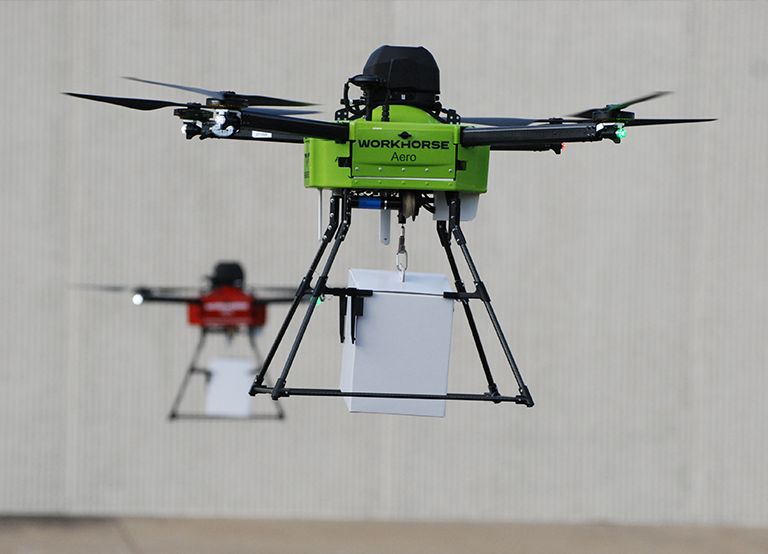
The American company Workhorse (which, for your information, is listed on the NASDAQ) is one of those who study the Ukrainian market closely. Working with such an organization would open amazing new opportunities to a local partner, including those that have to do with production scaling and product quality. In turn, the Americans gain access to the Ukrainian market, where humanitarian cargo and multipurpose drones are increasingly popular and there’s now a clearer understanding of how to use them in a specifically Ukrainian environment. Such a synergy also opens interesting prospects of entering foreign markets.
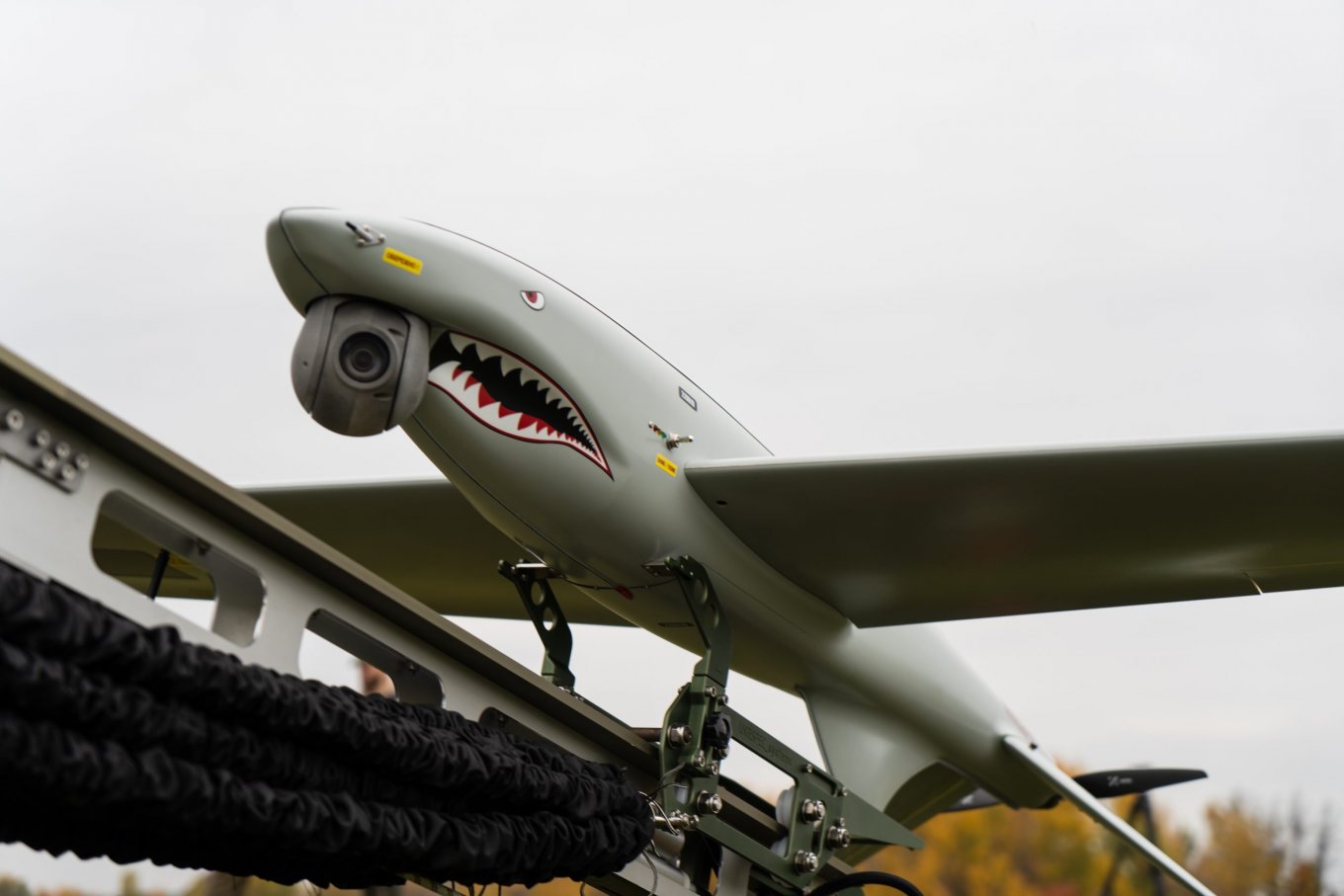
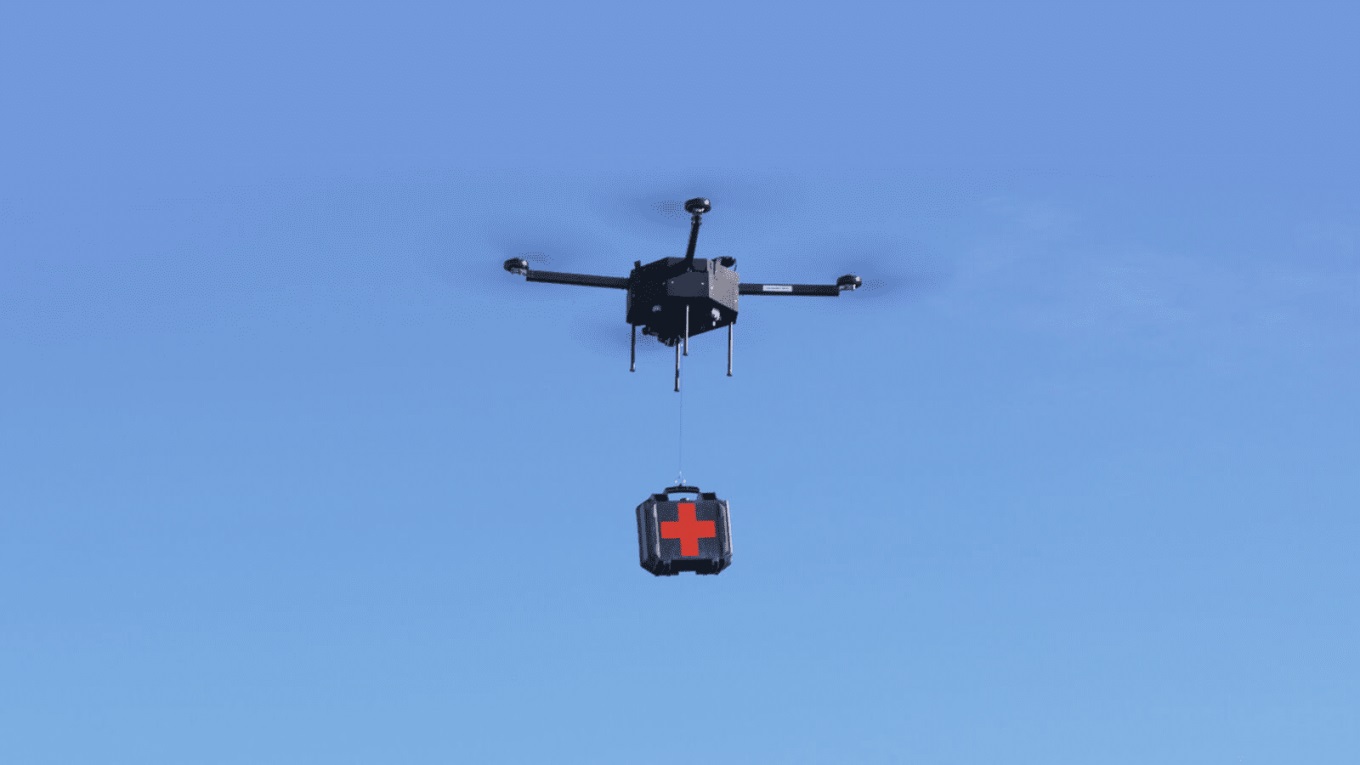
For the benefits you’ve described to be instrumental in attracting foreign partners, the state must play an important part in making sure the conditions are favorable and stable enough to do business. What do you believe the official state policy regarding defense industry development should be at this stage?
Of course, international defense projects involving major investors require a clear understanding of the new market and, more importantly, the new country where production is to be located. We have to appreciate how competitive the environment is. A global giant can set up a powerful production facility in Romania, Slovakia, or Poland just as easily as they can in Ukraine. It is up to us to make an international partner see the benefits of our jurisdiction.
Our approach to creating a favorable environment for foreign businesses that wish to invest in our defense industry must be systemic. The state must play an important part in this, and the state policy must be developed accordingly.
Firstly, the state must make our market easier to enter by offering better tax and permit incentives than our neighbors do. Secondly, we have to improve our system of accessing Ukrainian resources and coordinate the mechanisms of importing the raw materials and technologies that we lack. Thirdly, Ukraine needs component production facilities for hardware manufacturers to be able to access components here quickly. Fourthly, building convenient logistics networks to connect our western borders with production centers in Ukraine and the ports in the south is extremely important. Fifthly, for the system to be stable, the research and education base must be funded and improved. Lastly, regular state defense orders, with clear rules and access requirements, will help to create a truly favorable environment.
Providing production sites and protecting them from potential missile strikes is another area where the state can contribute, given the scale of expenditure this would require, but it will not be a problem, comprehensively and realistically, if Ukraine joins NATO. In that case, production defense would be the collective responsibility of the Alliance.
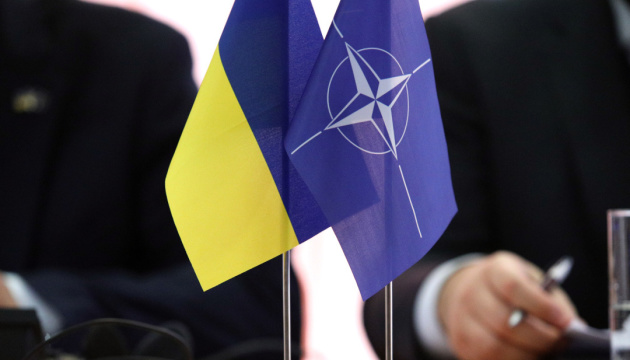
Interestingly, the role of the private sector in defense has been growing. The flexibility and creativity that businesses have to offer will play an increasingly important part in the development of the defense industry, and private actors, in the middle segment at least, will be attracting more foreign partners, and I must say that the middle segment will be the one to propel the entire sector forward. Laws will have to be adjusted to accommodate the developments. The import and export system for dual use products, technology exchange, and security procedures will have to be simplified. The Ukrainian state will hardly be able to make large enough orders to become the absolutely dominating customer for Ukrainian manufactures. As such, it will not have total control over them either, although it will retain strategic control in regard of nonproliferation, terrorism financing, sanction policy, etc. Like I said before, the state must create favorable conditions as well as maintain control.
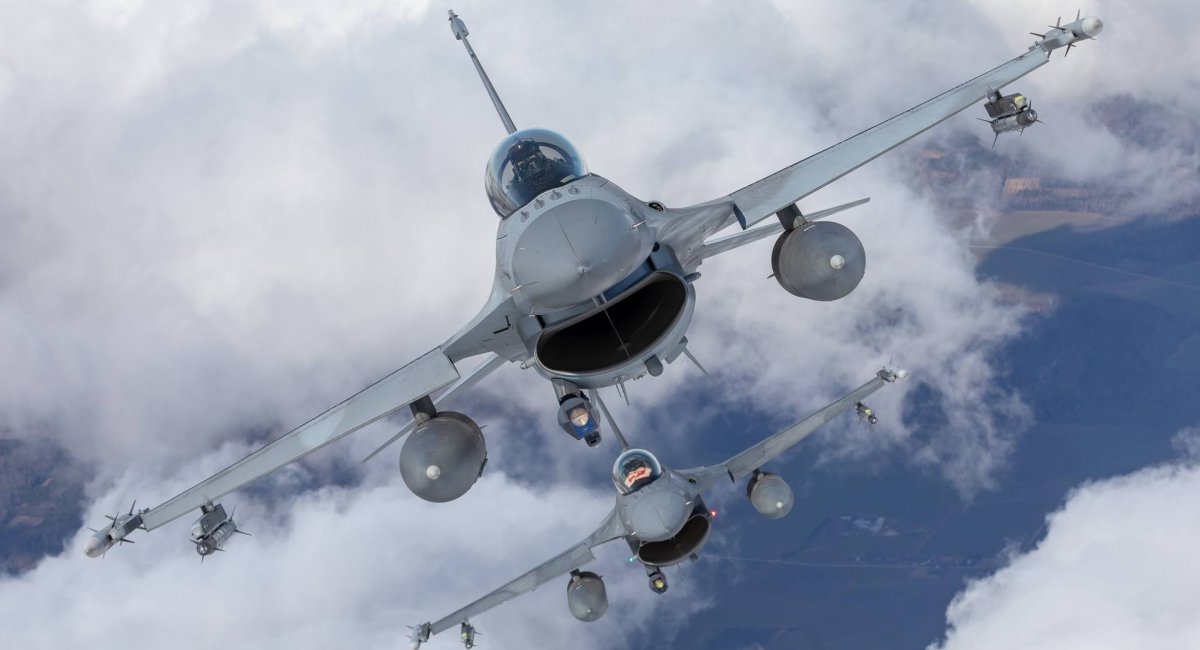
It would be great if the government produced a development strategy for the defense industry, where joint production in Ukraine and involving Ukrainian manufacturers in international programs to develop cutting-edge technology like the 5th and 6th generation fighter jets, hypersonic weapons, laser systems, etc would be a priority, given the current climate in the world and the new position the Ukrainian defense industry will have after the war.
As a representative of a company that works with business risks, could you tell us what kind of risks foreign partners see in Ukraine at present and how they can be mitigated?
The weapons market has one of the highest risk levels in terms of political, security, and compliance risks. Although our foreign partners do take an interest in the latest developments in Ukraine, they are in no hurry to enter our market with their technology and production capacities. It is only natural, because they can assess the risks.
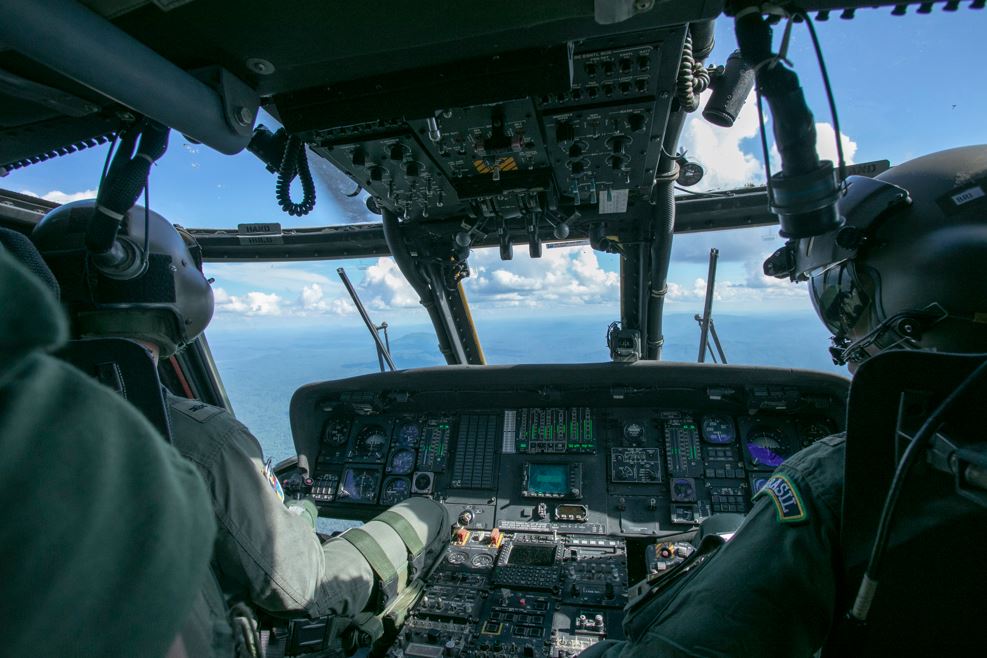
In addition to the obvious war-related risks, potential partners and investors can’t help but notice the lack of transparency in our decision-making processes, including appointments. When the system doesn’t function very well, one has to rely on people. If it’s unclear who is really responsible for what, and if one can’t be sure that the person in charge will not be replaced at any moment, entering a market like that becomes a very challenging proposition. I for one support the idea of building a system. Organization and control are what we’re lacking.
Mechanism transparency is another topic for discussion. Long before the Russian full-scale invasion, our partners suggested making the state defense orders public to minimize corruption risks. I consider this a very controversial topic, but it has to be considered.
When it comes to policy, consistency is not Ukraine’s strong suit. Many large-scale projects have fizzled out due to lack of professionalism, personnel changes, or a loss of focus on the part of their stakeholders. Strategy is important here too, because if a project is launched on a whim, without a clear objective, it fails just as spontaneously. I hope the platform Brave 1, which has been recently launched to develop the Ukrainian Mil Tech, will be an example of a consistent policy and continue developing the idea of making Ukrainian tech (not only UAVs) more accessible to the Armed Forces, which has been provided for by the Cabinet of Ministers this March [Decree No. 256 of the Cabinet of Ministers of Ukraine of 24 March 2023 “On implementing the experimental project to procure Ukraine-made UAVs for defense” – ed.]
In view of that, and COSA’s extensive experience in the compliance segment, what would you suggest foreign companies should do if they decide to bring their competences and capital into the Ukrainian defense production?
My first advice would be to operate as transparently as they can, publicly if possible, by joining such platforms as the U.S.–Ukraine Business Council (USUBC), which has already gathered the largest defense actors in the world under its wing.
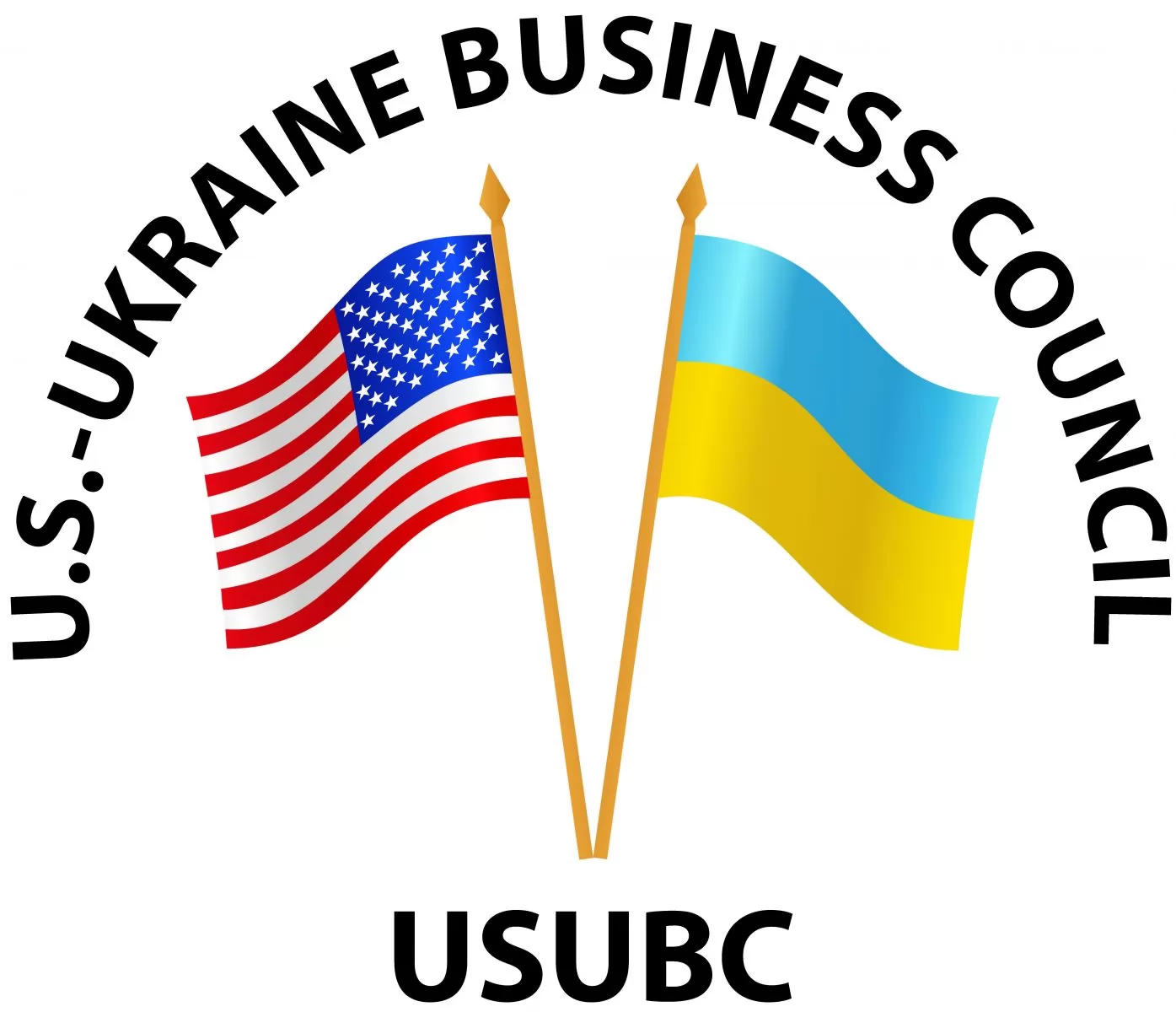
Moreover, when entering the Ukrainian market, one should adjust one’s compliance policies to fit the new environment, without expecting everything to work here the same way it does in the U.S., for instance. One of the first things on the to-do list would be to order an in-depth due diligence of local counterparties to see who you will be dealing with, what kind of professional background and reputation they have, who is really behind the company, whether or not it is a shell company created, say, by the Russians to make our market look unattractive and impossible to work in. There have been cases, where entities from some countries, let’s call them friendly to Russia, tried to become partners with and invest in Ukrainian manufacturers. All these risks can be dealt with. They shouldn’t stand in the way of cooperation. That’s what our company is here for, to uncover all risks and help potential partners lay a firm foundation of trust.
Defense Express Reference Information:
COSA offers professional corporate intelligence solutions to international companies that care about security, compliance, integrity, and continuity of business.
COSA’s team help their clients, including those in the defense sector, to enter and safely operate on new markets, understand the specifics, build mutually beneficial partner relationships, and avoid working with unreliable counterparties abroad.
COSA’s mission is to help companies do business in uncertain environments and provide them with the information they require to develop successfully and confidently regardless of any changes in their domain.
Interview by Valerii Riabykh,
Defense Express
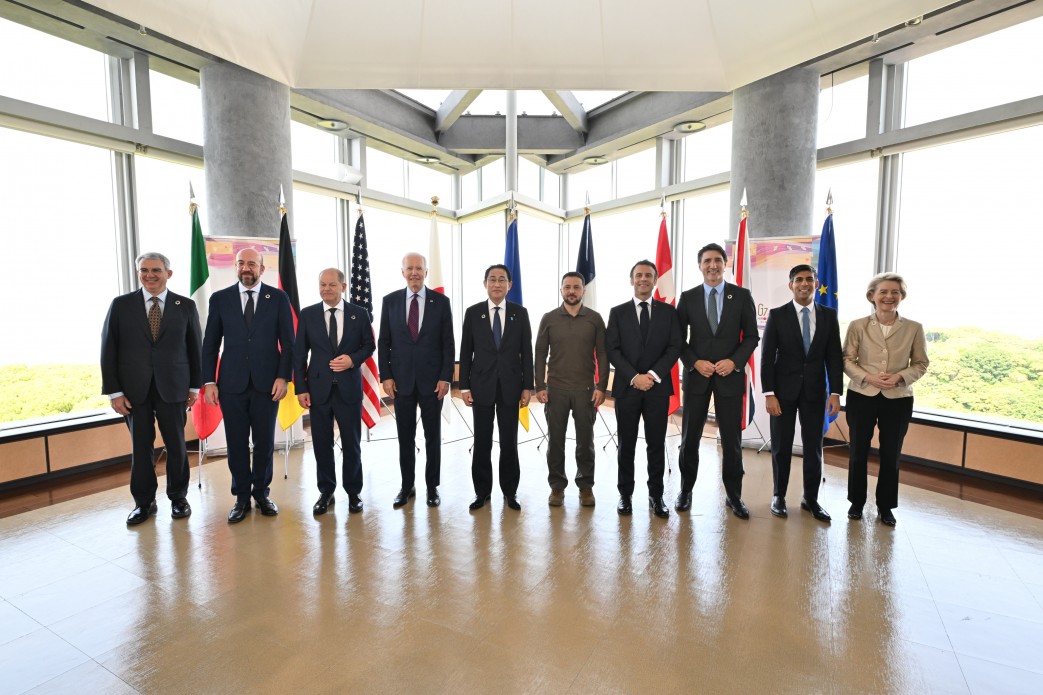
Read more: France To Send Ukraine SCALP Long-Range Missiles - Macron at NATO Summit



